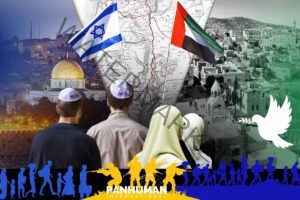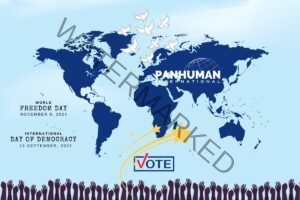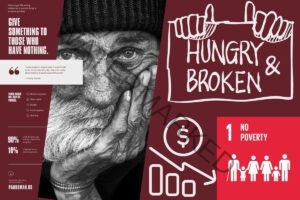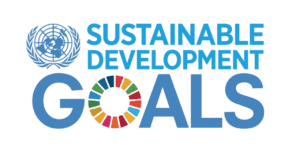 Terrorism, as it stands today, is a term applied almost exclusively to acts of violence perpetrated by non-state actors, aimed at creating fear and chaos to further political or ideological goals. However, the evolving global landscape of violence demands a redefinition of this term to include actions by nation-states that target civilians with equal brutality and disregard for human life. If we are serious about fostering a world of lasting peace, it’s critical to examine the disparity in how the global community addresses violence by individuals or groups versus that inflicted on a massive scale by states themselves.
Terrorism, as it stands today, is a term applied almost exclusively to acts of violence perpetrated by non-state actors, aimed at creating fear and chaos to further political or ideological goals. However, the evolving global landscape of violence demands a redefinition of this term to include actions by nation-states that target civilians with equal brutality and disregard for human life. If we are serious about fostering a world of lasting peace, it’s critical to examine the disparity in how the global community addresses violence by individuals or groups versus that inflicted on a massive scale by states themselves.
In our increasingly interconnected world, the language we use to define violence and responsibility has profound implications on global policy, justice, and peace. However, “terrorism” remains a term applied selectively, often to individuals and small groups while large-scale acts of violence committed by state actors go unaddressed. The international community’s failure to hold all perpetrators equally accountable erodes trust in global governance, undermines human rights, and perpetuates cycles of violence. It is imperative that we redefine terrorism in a way that holds all violent actors responsible—whether individuals, groups, or state governments—and establish a global framework that reflects this commitment to universal justice and human dignity.
The Double Standard of Civilian Casualties
In a typical terror attack, a group or individual who kills a few dozen civilians is quickly labeled a “terrorist,” with a focus on their ruthless disregard for human life. Yet, when governments kill civilians en masse—often numbering in the thousands—through warfare or proxy conflicts, the response is different. Such actions are often categorized as “military interventions” or “collateral damage,” exempt from the “terrorist” label and its accompanying moral and legal condemnation. This double standard is not only ethically flawed but also deeply destabilizing. It implicitly conveys that the lives lost in state-sanctioned violence are of lesser value than those lost to non-state actors, diminishing the importance of each human life in the eyes of the law and international governance.
State Terrorism: A Threat to Global Peace
The tragic reality is that when powerful states inflict violence, it sends a dangerous message that might makes right. The lack of accountability creates a world where civilian populations in conflict zones live in perpetual fear, unable to rely on international laws to protect them from state violence. As a result, resentment, instability, and insurgency grow—fueled by the despair of individuals whose lives and communities are destroyed by foreign interference or direct military aggression.
Just as we would penalize a terrorist organization that bombards civilian populations, we must also penalize countries that launch reckless military campaigns or proxy wars that lead to mass civilian casualties. These actions have long-lasting effects, as generations are left to cope with the devastation of war. To genuinely promote global peace, we must confront this hypocrisy and broaden our understanding of terrorism to include acts of state violence that deliberately target or recklessly endanger civilian lives.
The United Nations’ Role in Ending State Impunity
The United Nations was founded to foster peace and prevent the kind of atrocities witnessed during the World Wars, yet it has often faltered when it comes to holding powerful states accountable. Without consistent action against state terrorism, the UN’s foundational mission is undermined. It is time to take concrete steps toward a redefinition of terrorism that holds all perpetrators accountable, not just non-state actors.
The UN could strengthen its stance by instituting sanctions, travel bans on government officials responsible for war crimes, and mandating reparations for victims. For any state found to have deliberately attacked civilian populations or to have engaged in reckless disregard for human life, the UN should consider designating these nations as “terrorist states.” These countries should face severe economic sanctions, restricted travel for officials, and a requirement to provide monetary compensation to affected families. Furthermore, these governments should be required to issue public apologies and pledge non-violence against civilians. This would not only deter future aggressions but also provide some measure of justice to the victims of such atrocities.
Human Rights Hypocrisy: When Champions Turn a Blind Eye
Historically, nations that advocate for human rights often turn a blind eye to violence committed by their allies, even when it results in civilian deaths. The selective outrage erodes the moral authority of these countries and reveals the conditional nature of their commitment to human rights. True justice cannot thrive in a world where the value of human life fluctuates based on political alliances.
This hypocrisy is glaringly evident in how many powerful countries respond to civilian deaths on the “other side” of a conflict. While denouncing violence committed by opponents, these same nations downplay or justify the deaths caused by their allies, reinforcing an unfair power dynamic that permits mass violence as long as it aligns with certain strategic interests. If human rights are universal, then every civilian death—regardless of the perpetrator or the nation affected—should be treated with the same gravity.
A Universal Standard: Every Human Life Is Sacred
The cornerstone of a peaceful global society lies in acknowledging that every human life has intrinsic value. By tolerating violence when it is politically convenient, we erode this universal principle, weakening our commitment to peace and human dignity. If the lives of civilians in one country are mourned while those in another are dismissed as mere “collateral damage,” we fail to create an environment of mutual respect and empathy.
Redefining terrorism to include state violence is a necessary first step in elevating our commitment to human rights. We must reject the notion that any government has the moral license to disregard civilian life, regardless of its military, economic, or political power. The lives of individuals caught in the crossfire of these conflicts deserve equal consideration, and justice demands that all perpetrators, state or non-state, be held to the same standards.
Toward a Lasting Global Peace
The global community must work together to redefine terrorism in a way that holds states accountable for acts of mass violence, creating a legal and ethical standard that transcends political alliances. By treating state violence against civilians as terrorism, the international community can foster an environment where every life is valued, justice is pursued for all victims, and peace becomes more attainable. Lasting global peace is possible only when we have the courage to confront and dismantle the structures that allow state actors to evade accountability. A truly inclusive definition of terrorism would help ensure a world where all lives are protected and justice is served, regardless of who holds power.
PANHUMAN INTERNATIONAL: For Peace. For Humanity. For Progress.



 Terrorism, as it stands today, is a term applied almost exclusively to acts of violence perpetrated by non-state actors, aimed at creating fear and chaos to further political or ideological goals. However, the evolving global landscape of violence demands a redefinition of this term to include actions by nation-states that target civilians with equal brutality and disregard for human life. If we are serious about fostering a world of lasting peace, it’s critical to examine the disparity in how the global community addresses violence by individuals or groups versus that inflicted on a massive scale by states themselves.
Terrorism, as it stands today, is a term applied almost exclusively to acts of violence perpetrated by non-state actors, aimed at creating fear and chaos to further political or ideological goals. However, the evolving global landscape of violence demands a redefinition of this term to include actions by nation-states that target civilians with equal brutality and disregard for human life. If we are serious about fostering a world of lasting peace, it’s critical to examine the disparity in how the global community addresses violence by individuals or groups versus that inflicted on a massive scale by states themselves.








